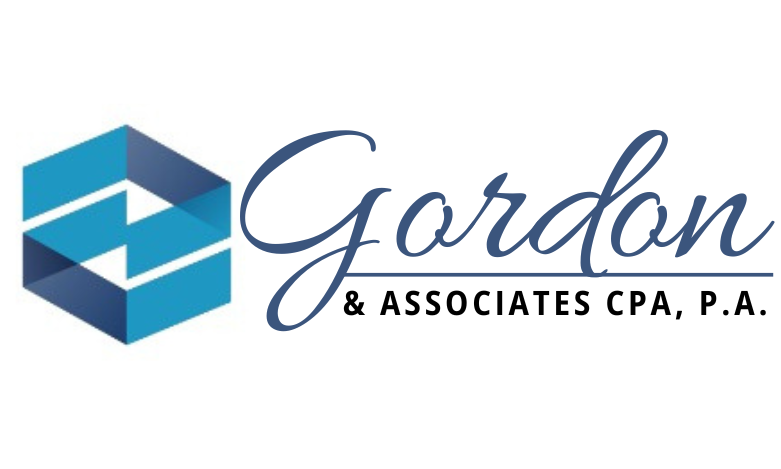Year-End Tax Planning Tips
for Small Businesses

As the end of the year approaches, small business owners have a prime opportunity to assess their financial standing and implement strategies to minimize their tax liability. Year-end tax planning isn’t just about meeting deadlines—it’s about making strategic moves that can save your business money and set you up for success in the coming year. This guide provides actionable tax planning tips tailored for small businesses.
1. Review Your Financial Statements
Start your year-end tax planning by reviewing your financial statements, including your income statement, balance sheet, and cash flow statement. Understanding your current financial position is critical for identifying tax-saving opportunities.
Key Actions:
- Look for discrepancies or missing entries in your records.
- Identify areas where you can reduce expenses or defer income.
Tip: Work with a bookkeeper or accountant to ensure your records are accurate and up-to-date.
2. Defer Income and Accelerate Expenses
If your business operates on a cash basis, consider deferring income to the next year and accelerating expenses into the current year to reduce your taxable income.
How to Defer Income:
- Delay sending invoices for services or products until January.
- Postpone end-of-year sales if feasible.
How to Accelerate Expenses:
- Prepay rent, utilities, or insurance premiums due in early 2024.
- Purchase necessary office supplies, equipment, or inventory before December 31.
3. Take Advantage of Section 179 and Bonus Depreciation
The IRS allows small businesses to deduct the full cost of qualifying equipment and software purchased and placed in service during the year under Section 179. Additionally, bonus depreciation enables businesses to deduct a larger portion of the cost in the first year.
What Qualifies:
- Office furniture and fixtures
- Computers and business-related software
- Machinery and vehicles used for business
Tip: Ensure the assets are in use by December 31 to qualify for these deductions.
4. Maximize Retirement Contributions
Contributing to a retirement plan reduces taxable income while helping you save for the future. If you don’t already have a plan, consider establishing one before year-end.
Options for Small Businesses:
- SEP IRA: Contributions are tax-deductible and flexible, with high contribution limits.
- Solo 401(k): Ideal for sole proprietors or small businesses with no employees.
- SIMPLE IRA: Easy to set up and maintain, with lower contribution limits.
Contribution Deadlines:
- Contributions to existing plans must be made by December 31 for the current tax year.
- New plans must be established before year-end.
5. Claim Tax Credits
Tax credits reduce your tax liability dollar-for-dollar and are often more beneficial than deductions. Review available credits to determine which ones apply to your business.
Examples of Tax Credits:
- R&D Tax Credit: For businesses engaging in research and development activities.
- Work Opportunity Tax Credit (WOTC): For hiring employees from specific target groups.
- Energy Efficiency Credits: For businesses that make energy-efficient upgrades.
6. Manage Inventory Wisely
If your business deals with inventory, conducting a year-end inventory review can identify obsolete or unsellable items that can be written off.
Key Actions:
- Write down inventory that is damaged or no longer marketable.
- Donate excess inventory to a qualified charity for an additional deduction.
7. Plan for Estimated Taxes
Ensure you’ve paid enough in estimated taxes throughout the year to avoid penalties. Use Form 1040-ES to calculate your fourth-quarter payment, which is due on January 15.
Tip: If you anticipate a lower tax liability next year, adjust your estimated payments accordingly.
8. Leverage Charitable Contributions
Donating to a qualified charity not only benefits the community but also provides a tax deduction for your business. Contributions can include cash, inventory, or even services.
Tip: Keep receipts and documentation for all charitable donations to substantiate your deductions.
9. Evaluate Your Business Structure
Year-end is an excellent time to assess whether your current business structure is still the best fit for your operations and goals.
Considerations:
- Switching from a sole proprietorship to an LLC for liability protection.
- Electing S-Corporation status to save on self-employment taxes.
Tip: Consult with a business consultant or CPA to understand the tax implications of making these changes.
10. Consult a Tax Professional
The tax code is complex, and year-end planning can be overwhelming. Working with a CPA or tax advisor ensures you’re maximizing deductions and credits while staying compliant with IRS regulations.
Benefits of Professional Guidance:
- Tailored tax strategies based on your unique business needs.
- Assistance with year-end reporting and estimated tax calculations.
- Insight into upcoming tax law changes that may impact your business.
Year-end tax planning is an essential part of running a successful small business. By implementing these strategies, you can reduce your tax liability, improve cash flow, and position your business for a strong start to the new year. Don’t wait until the last minute—start your planning today and consult with a tax professional to make the most of your opportunities.
Ready to simplify your year-end tax planning? Contact us today for expert advice tailored to your business needs.
Subscribe to our newsletter to receive our latest blog directly to your inbox.
- Business Financial Management
- Regulations and Compliance
- Tax Planning and Compliance
- Tax Planning and Strategies
- Conducting a Comprehensive Year-End Financial Review: A Guide for Small Business Owners
 A thorough year-end financial review is essential for assessing your business’s performance and planning for the future. Analyze revenue, expenses, cash flow, debt, and tax obligations to identify areas for growth and improvement. Reviewing key performance indicators (KPIs) and setting financial goals will help you start the new year on solid ground. Need expert assistance with your year-end financial review? Contact us today to ensure your business is positioned for success!
A thorough year-end financial review is essential for assessing your business’s performance and planning for the future. Analyze revenue, expenses, cash flow, debt, and tax obligations to identify areas for growth and improvement. Reviewing key performance indicators (KPIs) and setting financial goals will help you start the new year on solid ground. Need expert assistance with your year-end financial review? Contact us today to ensure your business is positioned for success! - Developing an Effective Budget for the New Year: A Step-by-Step Guide for Small Business Owners
 Start the new year with a strong financial foundation by creating a well-structured budget. Assess your past financial performance, set clear business goals, and accurately estimate revenue and expenses. Allocate funds strategically, prepare for unexpected costs, and monitor your budget regularly to stay on track. Need expert guidance on financial planning? Contact us today to ensure your business is set up for success in the new year!
Start the new year with a strong financial foundation by creating a well-structured budget. Assess your past financial performance, set clear business goals, and accurately estimate revenue and expenses. Allocate funds strategically, prepare for unexpected costs, and monitor your budget regularly to stay on track. Need expert guidance on financial planning? Contact us today to ensure your business is set up for success in the new year! - Improving Cash Flow During the Holiday Season: Practical Tips for Small Business Owners
 The holiday season can bring both opportunities and challenges for small businesses. To maintain strong cash flow, forecast seasonal trends, speed up receivables with early payment incentives, and manage expenses wisely. Optimize inventory, explore financing options if needed, and maximize revenue through strategic promotions. Regular cash flow monitoring and post-holiday planning are key to long-term stability. Want expert guidance on managing holiday finances? Contact us today for personalized financial strategies!
The holiday season can bring both opportunities and challenges for small businesses. To maintain strong cash flow, forecast seasonal trends, speed up receivables with early payment incentives, and manage expenses wisely. Optimize inventory, explore financing options if needed, and maximize revenue through strategic promotions. Regular cash flow monitoring and post-holiday planning are key to long-term stability. Want expert guidance on managing holiday finances? Contact us today for personalized financial strategies!

